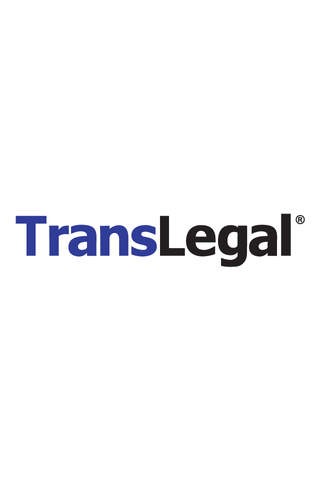
TransLegal’s Law Dictionary is the definitive dictionary of law for non-native speakers of English. It is the only dictionary of law designed specifically to help lawyers and law students working in English as a second language.
A British or U.S. lawyer looking up the word “decree” might want to know the difference between a “decree in equity” and a “judgment at common law” (something relevant only to the common law system). Lawyers who are non-native speakers of English will most often want to learn other things like how to use the word in a sentence, how to pronounce the word or what common mistakes to avoid. They need a learner’s dictionary of law.
Dictionary features:
• Over 3,000 legal terms
• Over 5, 000 easy to understand definitions
• Sound recordings to aid pronunciation
• Example sentences
• Common mistakes
• Tips on how to use the terms
• Differences in UK and US English highlighted
• Non-US and UK varieties of English also included
• Encyclopaedic entries for many terms
• Flexible search options
• Regular updates
TransLegal’s Law Dictionary is the product of thousands of hours of ongoing research carried out by an expert team of lawyer-linguists.
Every term included in TransLegal’s Law Dictionary has been thoroughly researched to ensure the definitions reflect current usage. This research was carried out with the aid of numerous corpora (collections of texts) and legal documents from a wide range of sources. Each definition has been graded so that it can be understood by learners with a Council of Europe CEFR B1-B2 level of English. Where more complex language has been unavoidable in the definitions, this language has been defined in parentheses.
Corpora were also used in the research carried out for the phrase bank entries in the full version of the dictionary to provide a selection of examples of contemporary usage together with common collocations (words that typically appear next to or near other words e.g. to breach a contract, a proprietary interest etc). Corpora, legal texts and authoritative guides to contemporary usage were referred to when developing the additional notes and common errors sections, together with examples and illustrations collected during TransLegal’s over 20 years of experience in training thousands of lawyers.
-------------
TRY SMART DICTIONARY ENGINE
• New! You can now look up words while reading in Safari. Highlight any text and send it to the dictionary via the “Share” button. Please first enable the dictionary as a Safari extension.
• New multiple clipboard look-up! You can now copy as many words as you need while reading – even the whole text, - switch back to the dictionary app and view all the relevant dictionary entries one-by-one.
• Full text search returns a number of usage examples from a list of entries containing your query.
• List of similar words in case of misspelling.
• Wildcard search to find the word even if you don’t know its exact spelling.
• Search for anagrams, e.g . tab-bat
LEARN THE LANGUAGE WITH TRANSLEGAL DICTIONARY
• Audio pronunciations recorded by native speakers.
• Favorite articles to quickly access and revise frequently searched words.
ENJOY THE MOST COMFORTABLE WORK
• Enlarge or reduce font size for your comfort.
• Graphics fully adapted for iPhone 6 and iPhone 6 Plus.
• Built-in PenReader multilingual handwriting recognition support.
• Enhanced customization options allow you to modify animated menus and choose background colors.
• No Internet connection required.
About TransLegal
Founded in 1989, TransLegal has grown to become the leader in Legal English, providing a wide range of products and services to the international legal community, including Legal English testing, online Legal English courses and resources, live seminars and training, translation of legal documents and the publication of Legal English materials.



